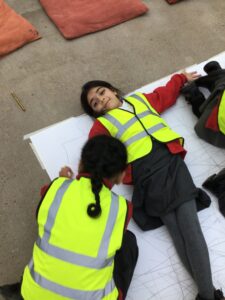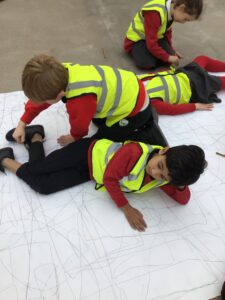Exploring the colour wheel
In this week’s art lesson, we explored the colour wheel.
We were confidently able to identify the three primary colours and the three secondary colours they make when mixed together!
Primary colours: red, yellow and blue
secondary colours:
red+blue=purple
red+yellow=orange
blue+yellow=green
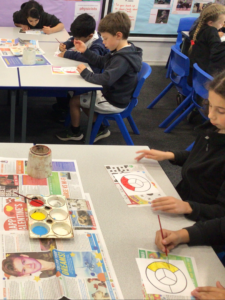
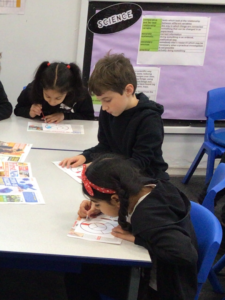
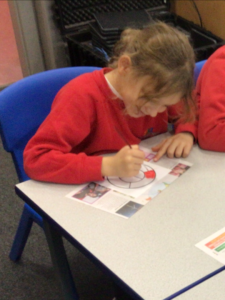
Quiz your child at home to see if they can remember our learning!
Skipping School
Hello everyone,
Year 4 had a fantastic morning with Skipping School leader’s – Jodi and Katie. They took the children through each step such as how to hold your skipping rope in a smile shape and when to jump after the rope clicks the floor. They then built up to doing complicated straddle jumps and crossing the skipping ropes! The children were great and picked up each skill with ease while working together and encouraging one another.

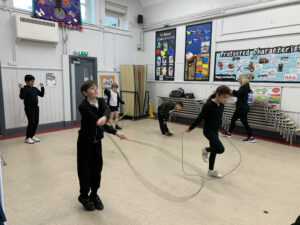
Year 4 will be participating in the Skipping School Competition after Easter which is all about getting moving and having fun while doing so! We will be practicing the skipping skills we learnt today, up until that point.
Help at home by getting the children skipping.
Living and Learning: Anti-bullying week
We have continued to have an anti-bullying theme to our learning this week.
One Kind Word has been this years’ key message and we created our own kindness wall to spread this message.

Our fluency text this week, which we read daily, is based on our child friendly anti-bullying policy. As part of these sessions, we discuss the vocabulary used in the text. We often use word hippo to check any definitions or to find synonyms for words to help us to understand their meaning.
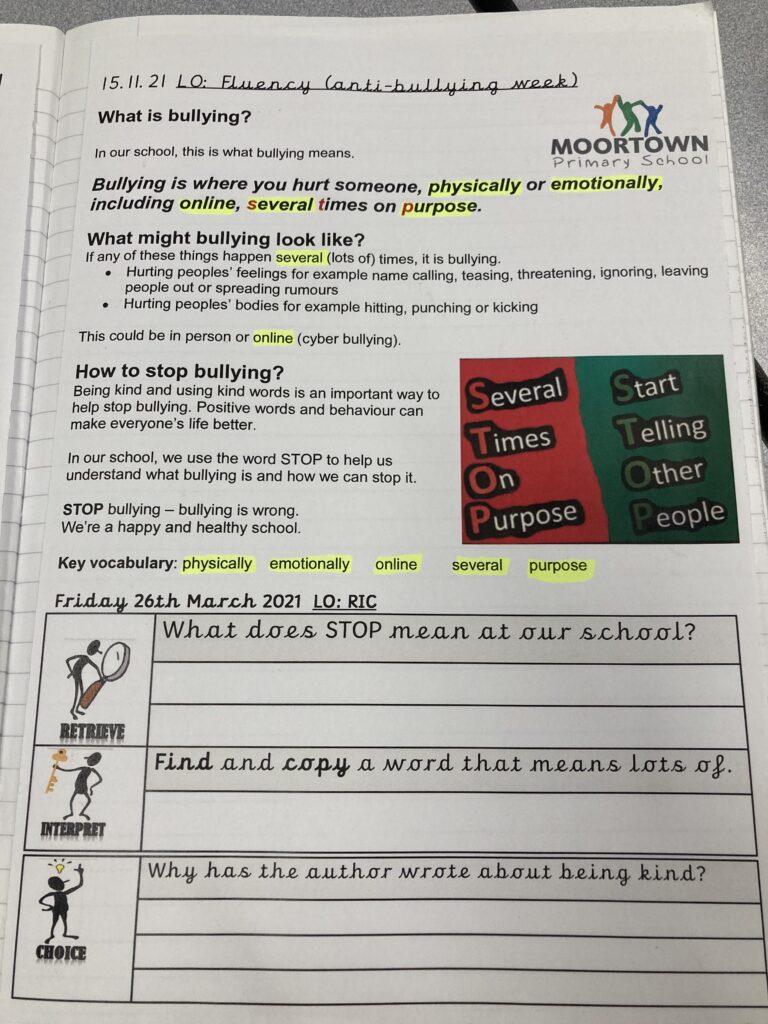
Another reading activity involved understanding word definitions where the children had to sort the words into bullying and anti-bullying words.
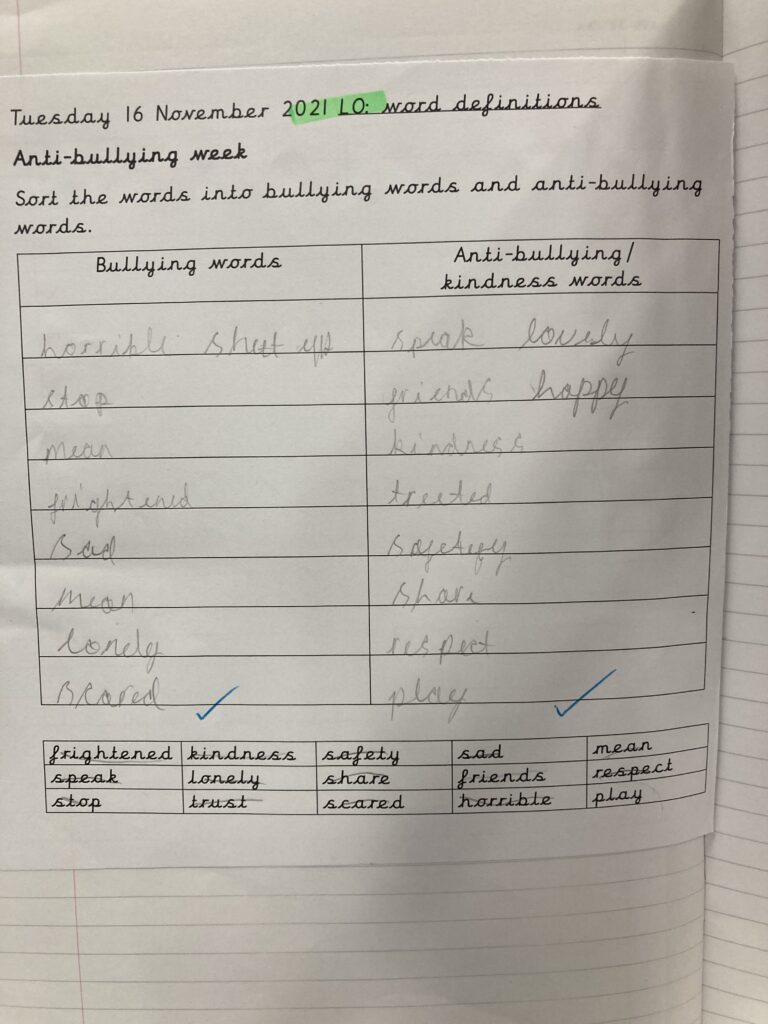
This reading activity is called a RIC where the children answer questions about the text – some answers may be in the text (retrieval questions), others may need some more thought and interpretation.

Alongside discussing what bullying is, we considered how someone might feel if they were being bullied and how it would affect their mental health. The children generated a great list of emotions when thinking about this.
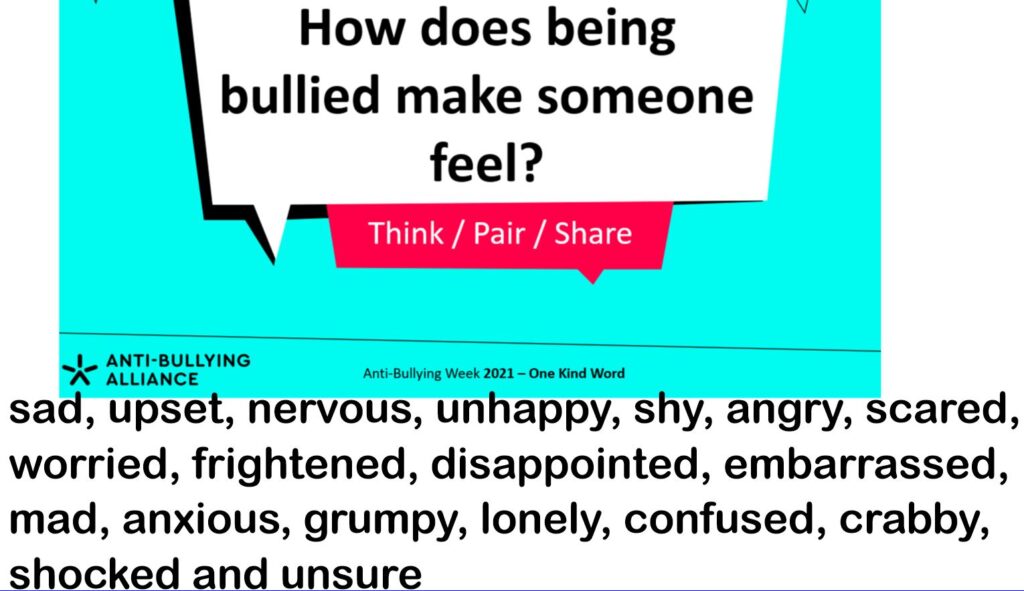
Finally, we reinforced the importance of the STOP message in our school.
STOP stands for two things:
- the definition of bullying: Several Times On Purpose
- the solution for bullying: Start Telling Other People
Well done Year 2 – you have showed great understanding around the subject of bullying.
Living and Learning: Odd socks day
It was great to see so many odd socks today – thank you for supporting this start to anti-bullying week.
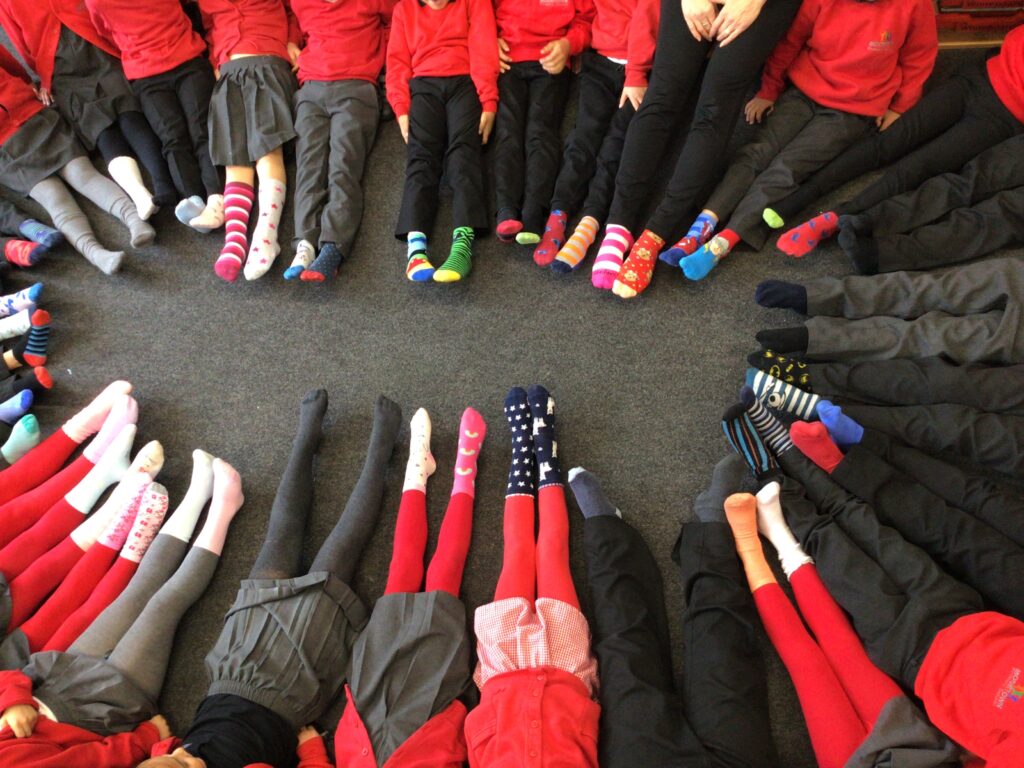

Odd socks day is a great way to celebrate what makes us all unique! Odd Socks Day is held in partnership with Andy and the Odd Socks. Have a listen to their song for this year.
The theme for this year’s anti-bullying week is One Kind Word. One kind word can lead to another and today we sent a wave of kindness through the class by giving compliments to each other. We saw how kindness fuels kindness. We also made some kindness pledges.
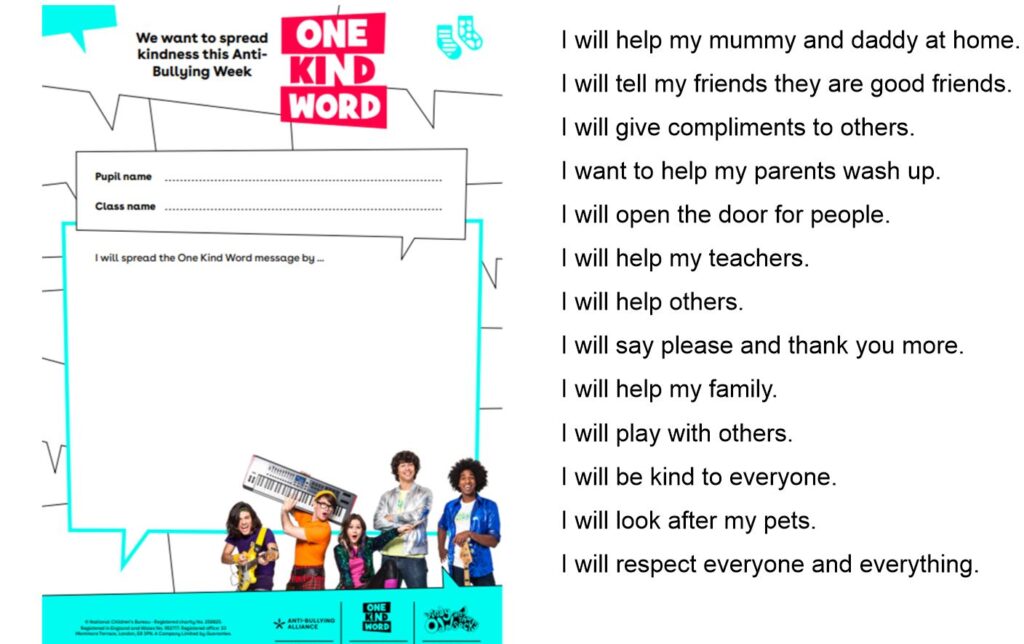 Look back tomorrow for more learning about how to STOP bullying.
Look back tomorrow for more learning about how to STOP bullying.
Living and Learning: Anti-Bullying Week
If you do just one thing today, choose “one kind word”. What could you say?
Today, Y6 wore odd socks!
“It’s to show we’re all the same because we all wear socks but we’re all different because they all have different patterns!” said Sasha.
“People have different personalities and like different things. Some people may wear a plain grey or black while some may wear crazy rainbow coloured ice cream ones!” explained Edris.
“But no matter what, people should be treated fairly and respectfully,” Hashim stated.
Here are our odd socks!
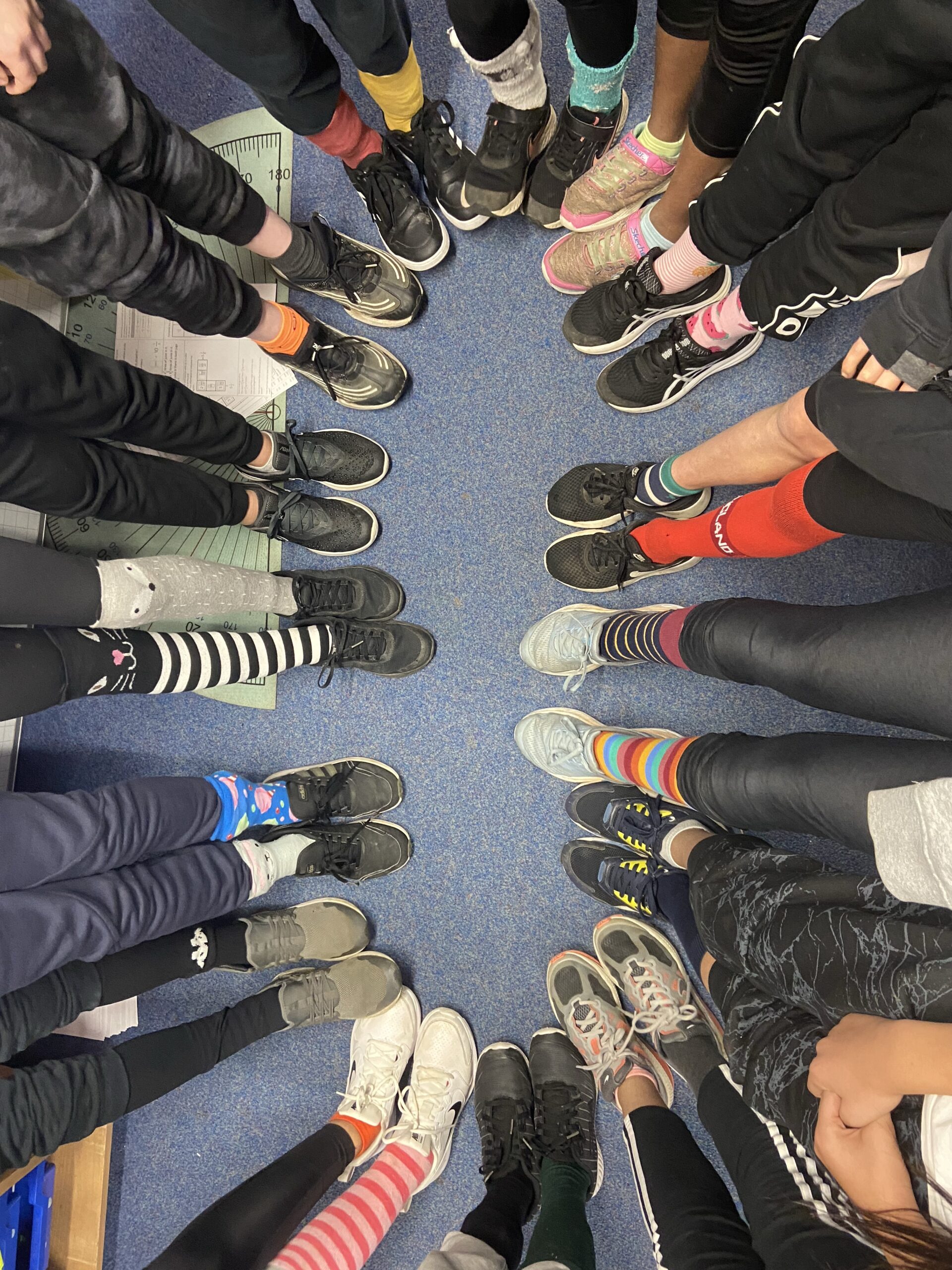
We also read about the character of our class novel, Stanley Yelnats, who was having trouble with a bully. We wrote letters to encourage him to seek help.
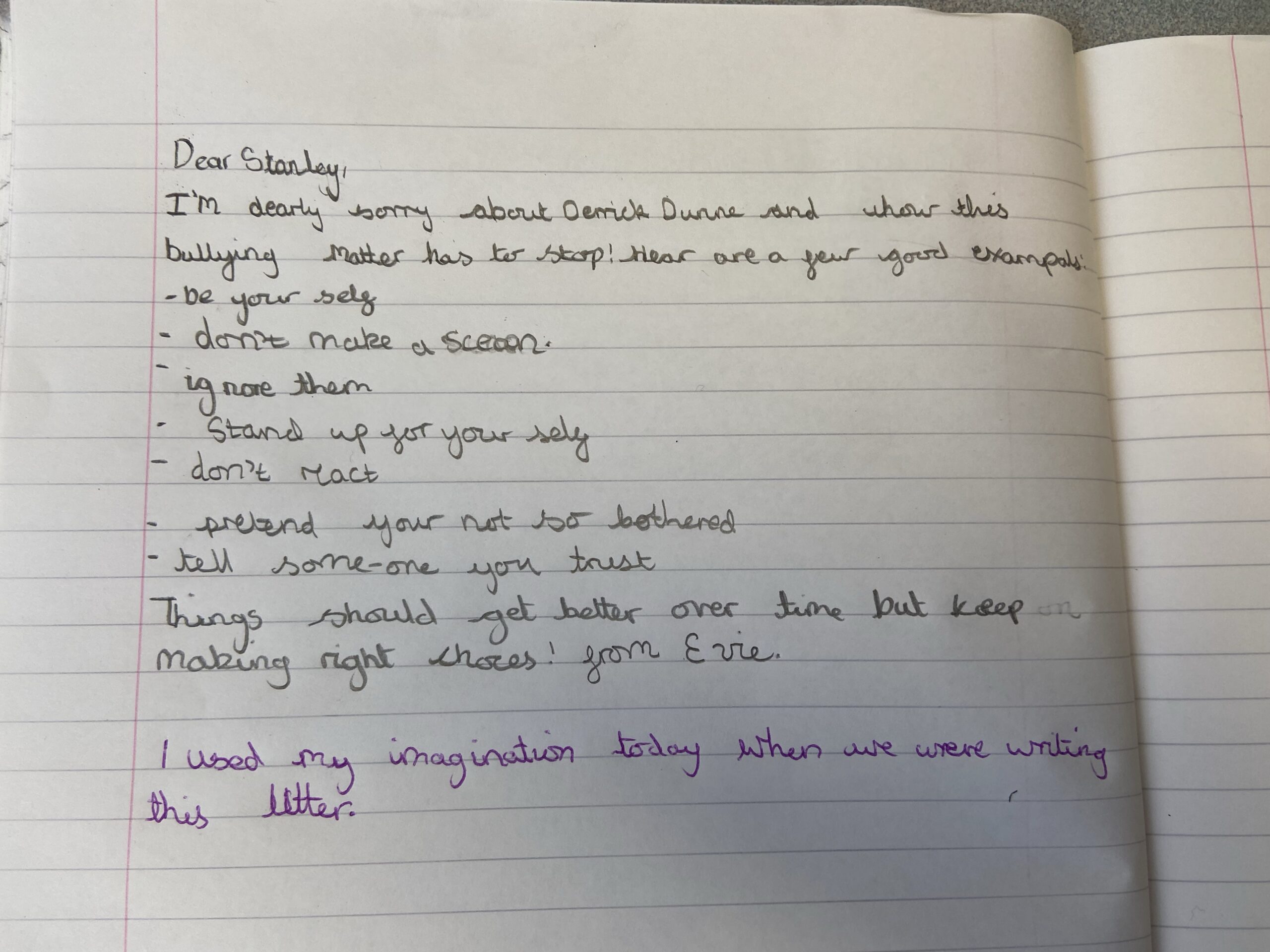
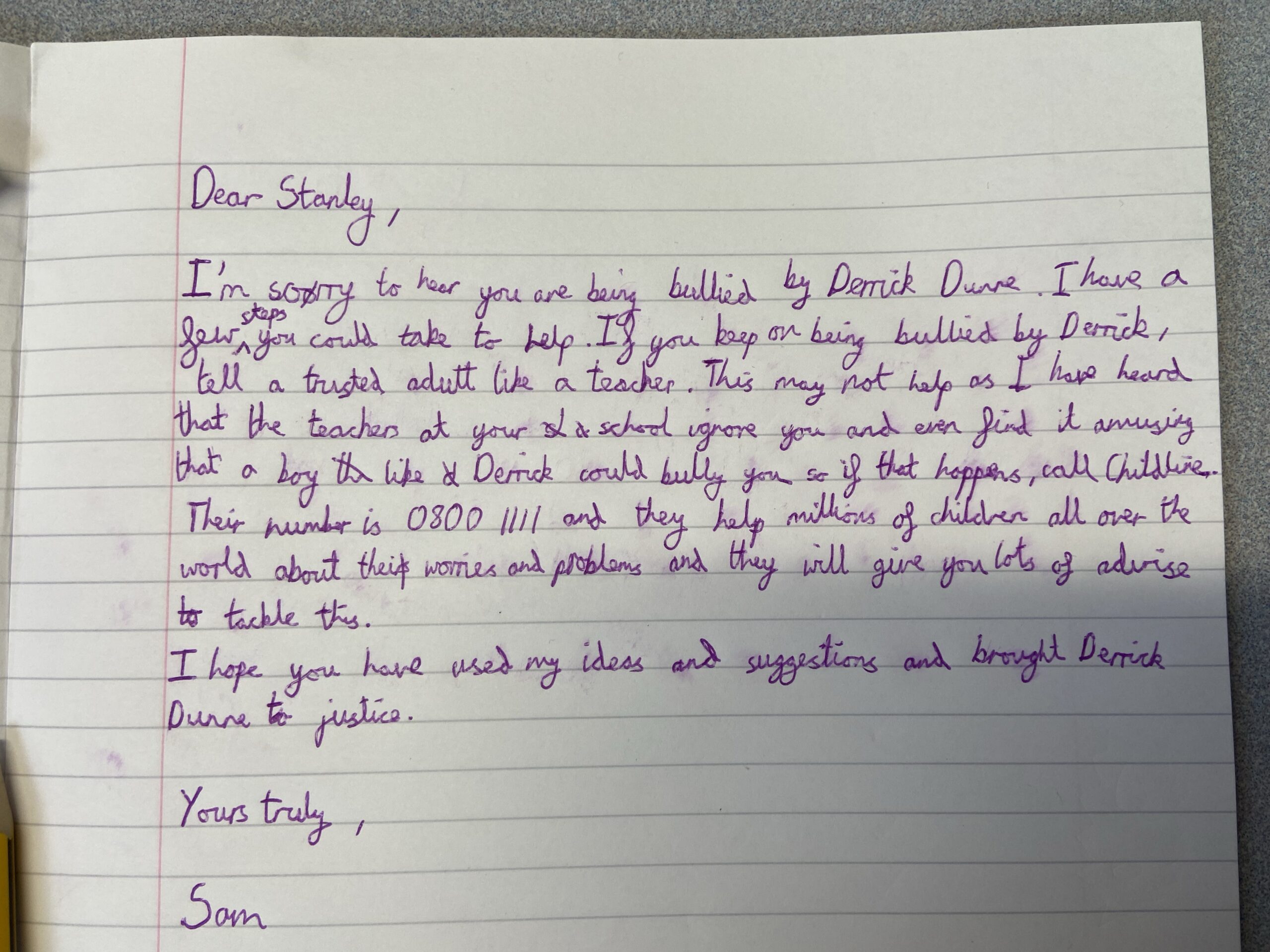
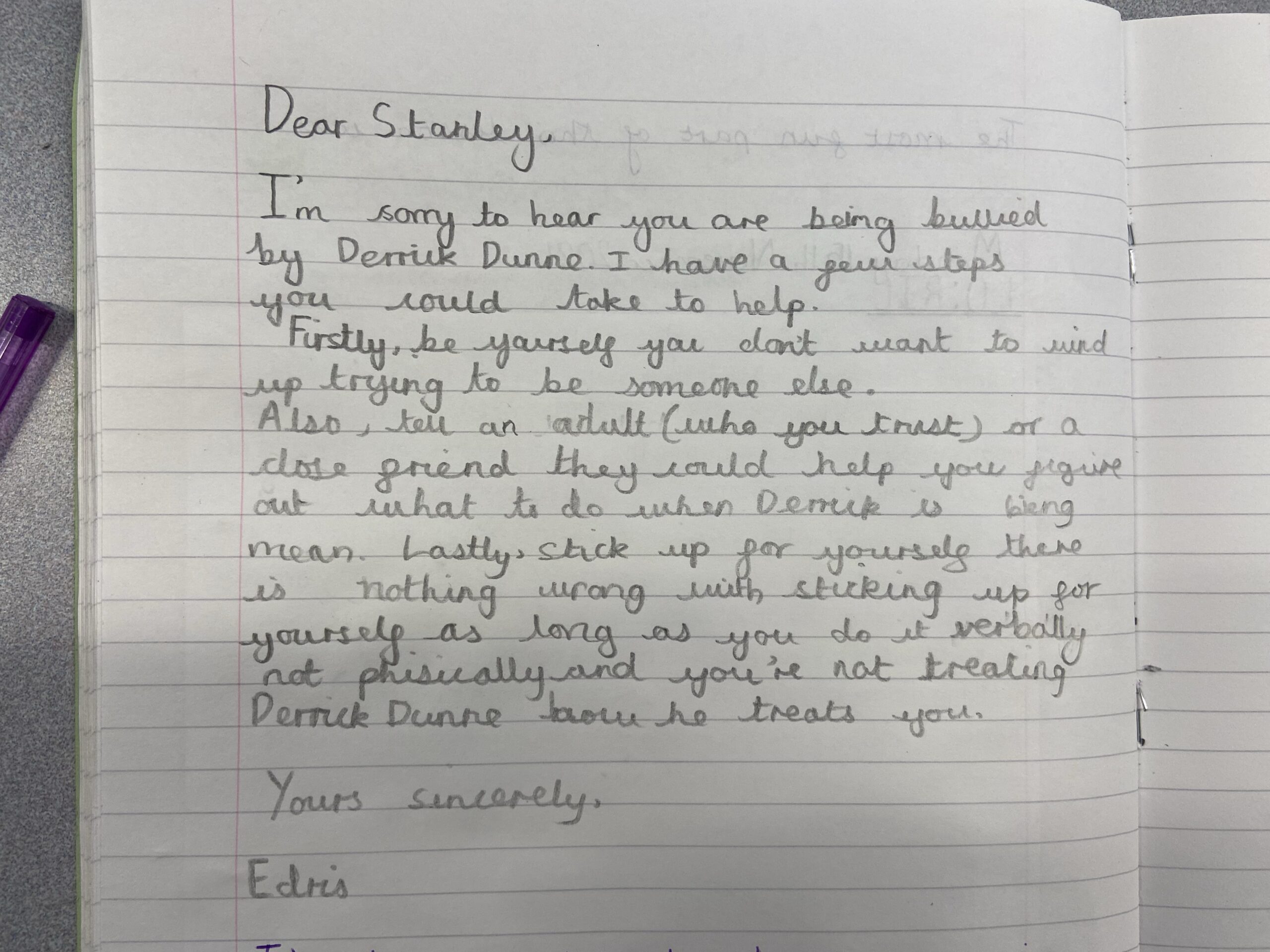
We also reminded ourselves of our bullying definition of STOP: someone is hurting you physically or emotionally, including online, several times on purpose.
This means you need to Start Telling Other People!
Challenge your child to show you the hand signals for the child line phone number! (08001111)
This week in Reception
This week is World Nursery Rhyme Week.
A nursery rhyme is a simple traditional poem or song for children. They date back to the late 1700s when the earliest versions were lullabies that mothers would sing to their babies.
Learning and singing nursery rhymes is beneficial for:
- boosting vocabulary and language development
- helping children develop literacy skills
- providing a fun way to support early numeracy skills
- helping children develop social, physical and emotional skills
We will be learning five nursery rhymes.
Sleeping bunnies, Incy Wincy Spider, Wind the bobbin up, Down in the jungle and Head, shoulders, knees and toes.
You can find links to all these rhymes at www.worldnurseryrhymeweek.com/
Phonics
The children are really enjoying their phonics lessons and beginning to use the letters and sounds they have learnt to blend and segment words independently. This week we will belearning the phonemes b, f, ff, l,ll. The tricky words are I, no and go.
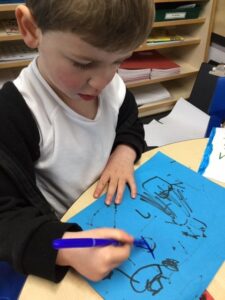
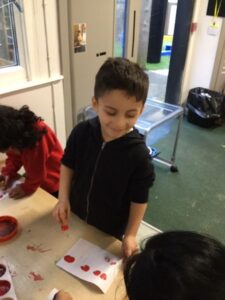
Maths
Thank you to everyone who attended our maths presentation. I hope you found it useful. If you have any questions, please ask.
This week, the children will continue to engage with activities that draw attention to the purpose of counting – to find out ‘how many’ objects there are. They will develop their understanding of the concept of cardinality (that the last number in the count tells us ‘how many’ things there are altogether).
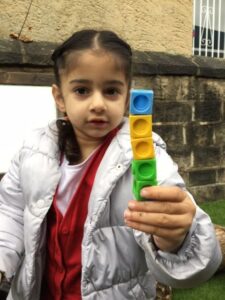
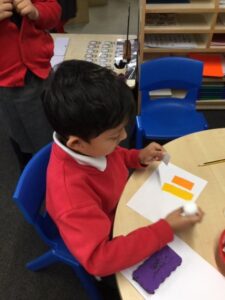
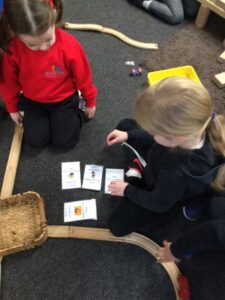
Children In Need
Friday is a non-uniform day to raise money for Children In Need.
Don’t forget to let us know of any ‘wow’ moments at home. Is your child beginning to notice and read words? Do they try to read signs when out and about?
Please let us know of any achievements.
moortownreception@spherefederation.org
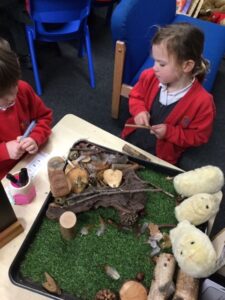
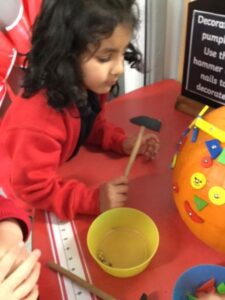
Yorkshire Sculpture Park
Last week, Year 5 visited Yorkshire Sculpture Park on our first school trip of the year.
The children explored the park, commenting on, and comparing a variety of sculptures over the course of the day.
Take a look at some pictures from the day:



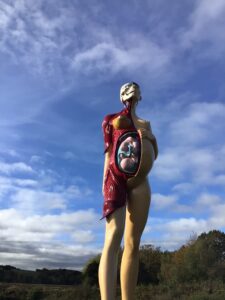


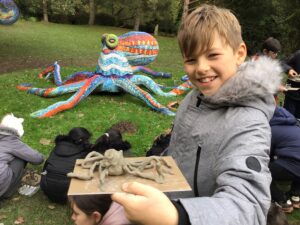



Exploring pattern
In a recent art session, we looked at artwork by one of our featured artists: Martha McDonald Napaltjarri.
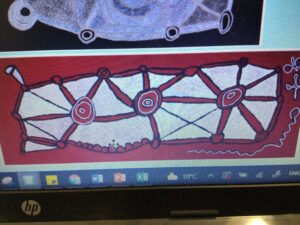
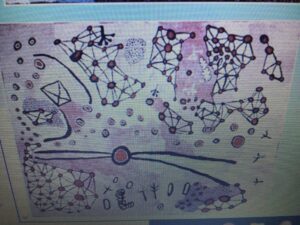
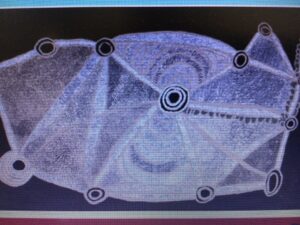
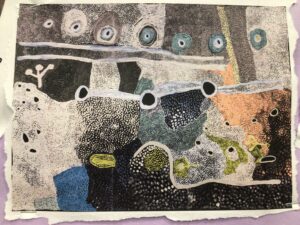
We closely observed the pattern within each piece of art and discussed what we could see.
We then explored our own patterns inspired by Napaltjarri and here’s some of our work.
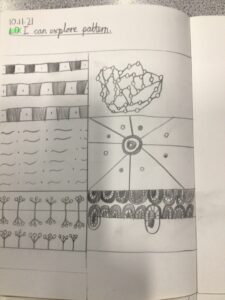
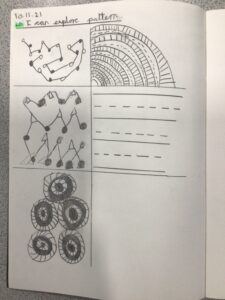
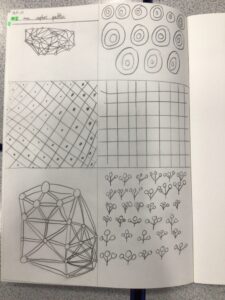
Book club
This weeks book club featured an activity called word storm!
We had to draw a picture of a character or setting from the book we’re reading and then surround it with powerful words and phrases.
Take a look…
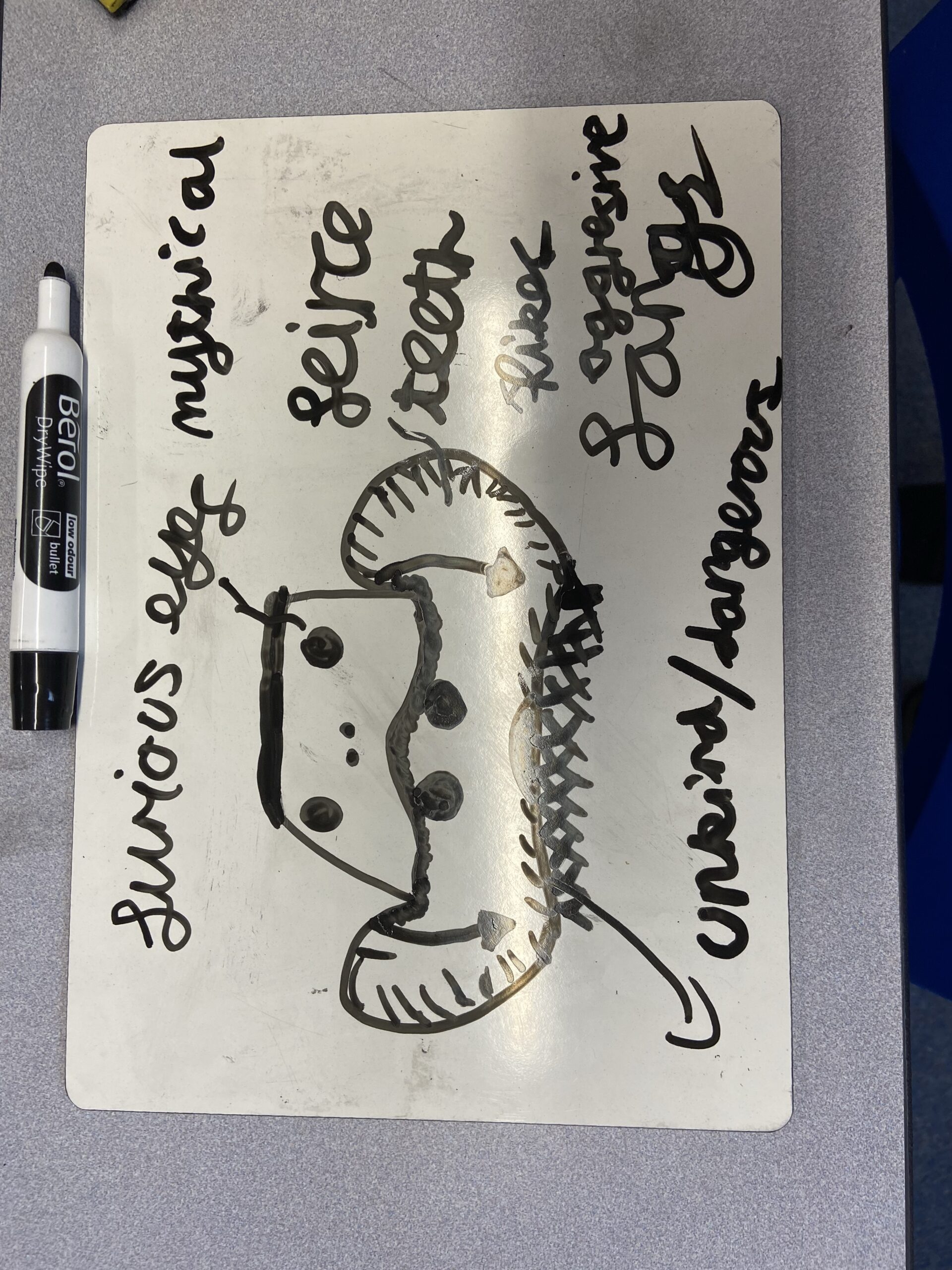
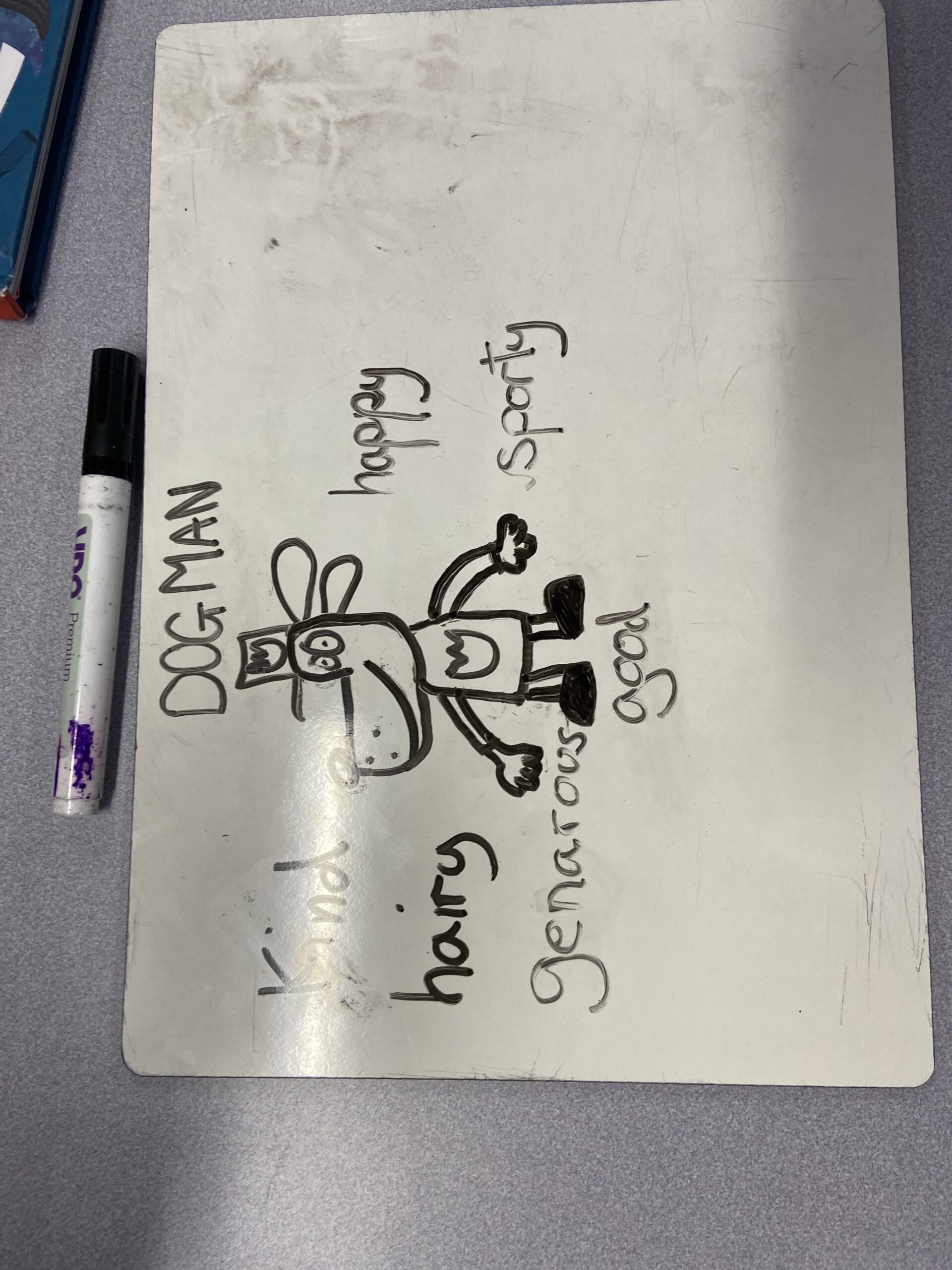
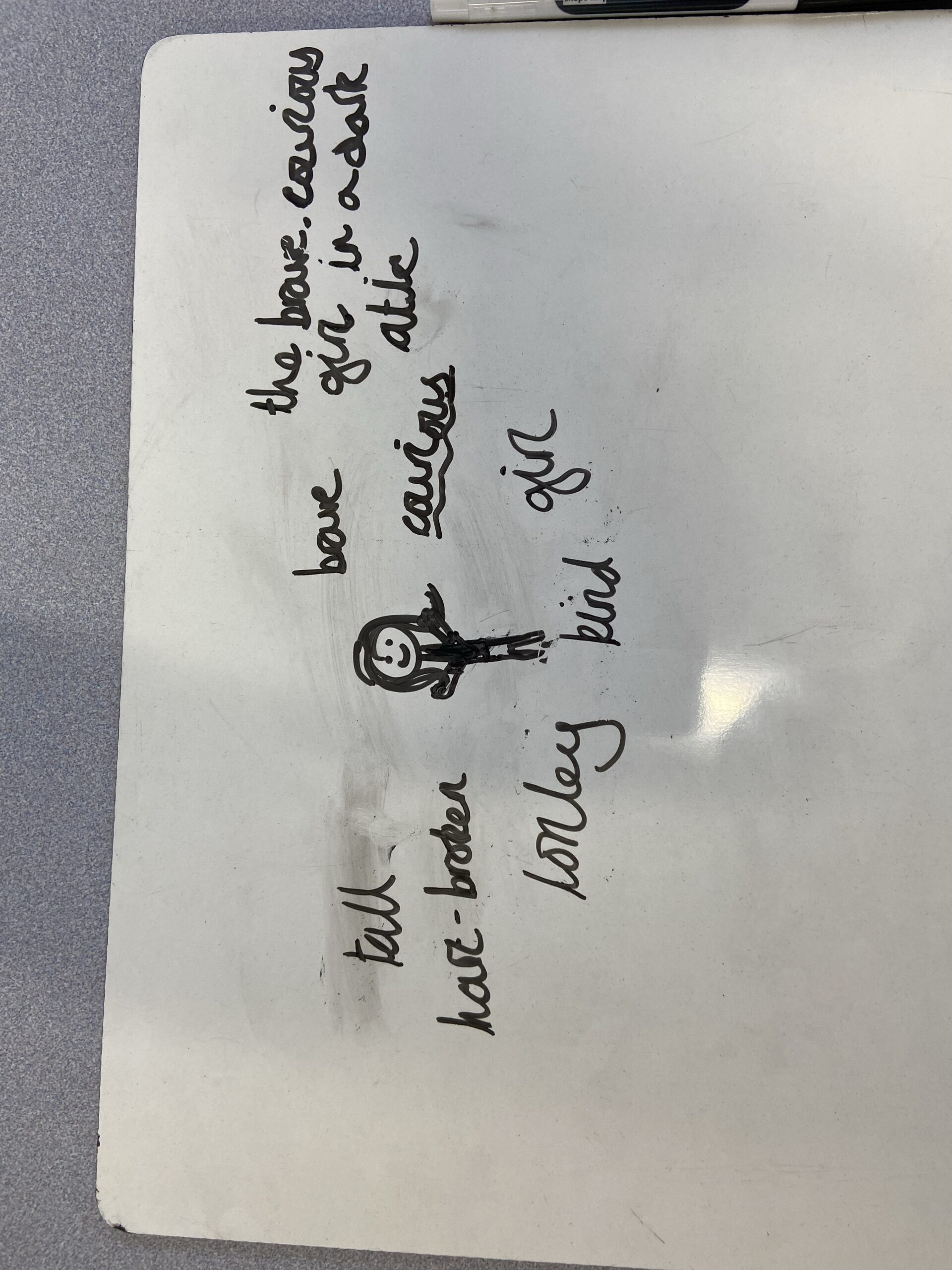
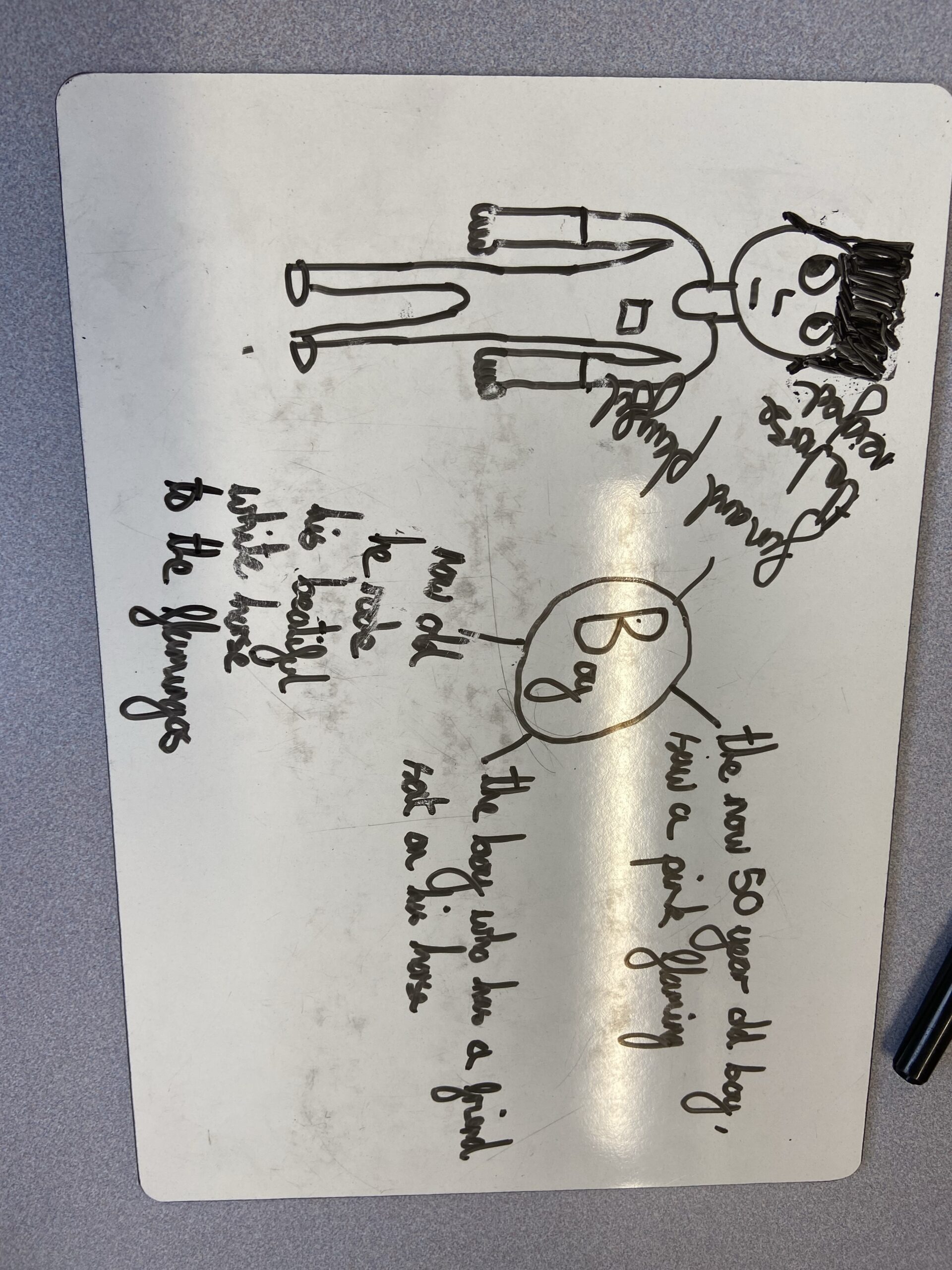
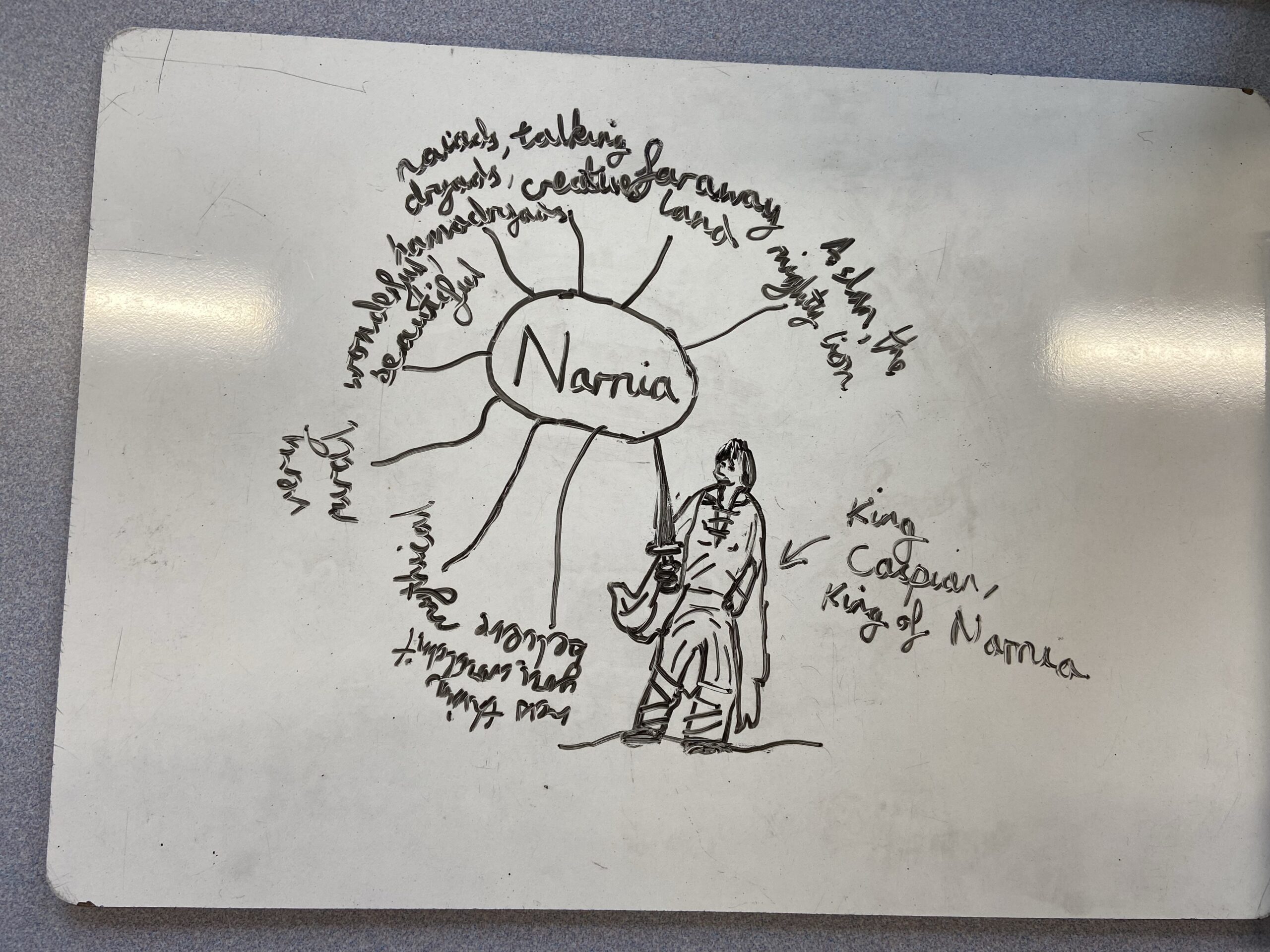
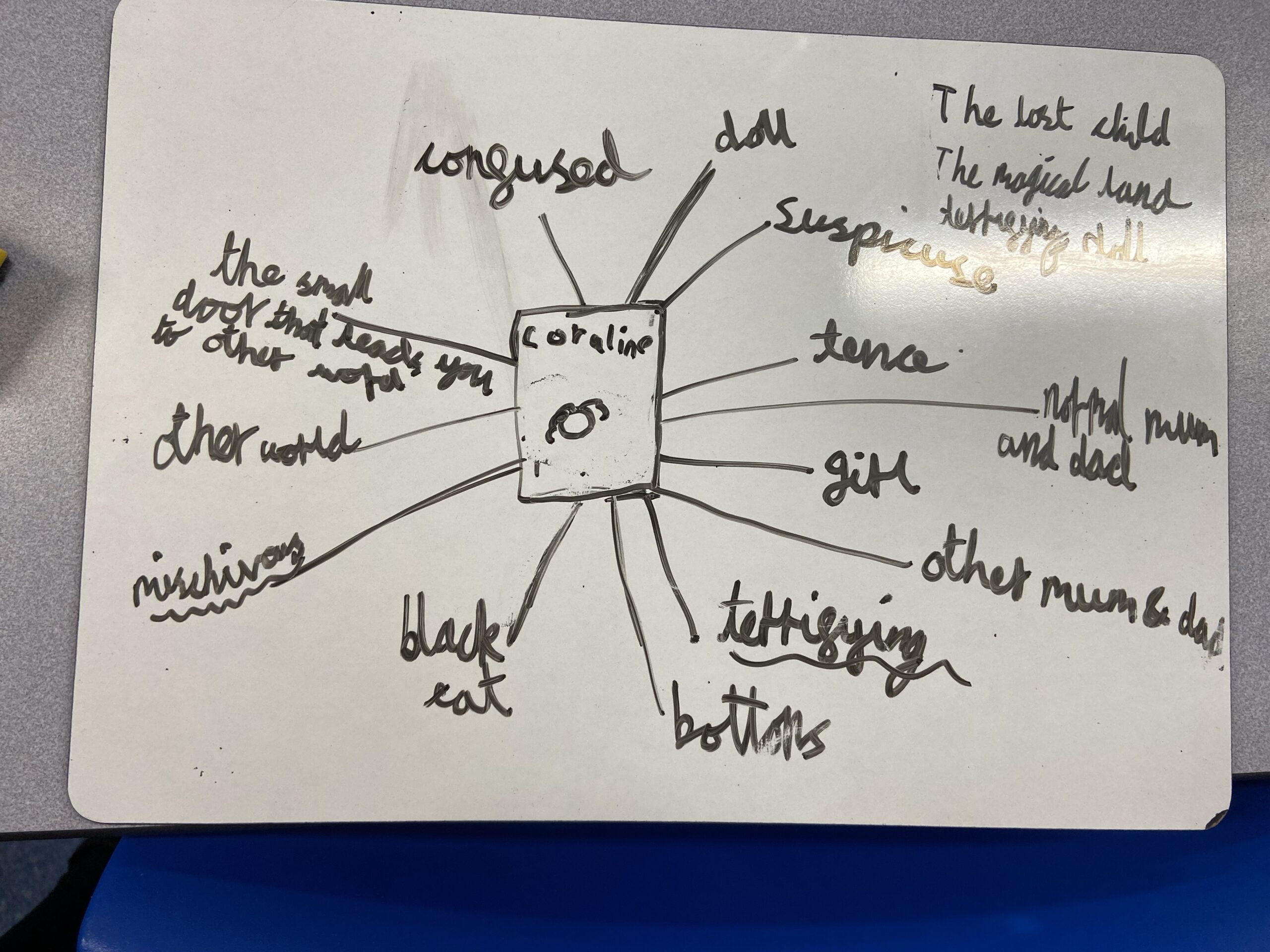
Art Gallery Trip
Today, we enjoyed a wonderful visit to Leeds Art Gallery. The visit links well with our Art topic this half term. All the children behaved impeccably and represented our school really well. We hope you have enjoyed talking about our trip at home.
At the gallery, we used shapes as inspiration to create our very own abstract art. Using view finders we found our favourite part and described what we could see. What shapes can you see? What does it remind you of?
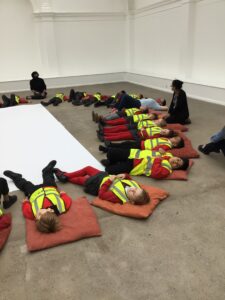
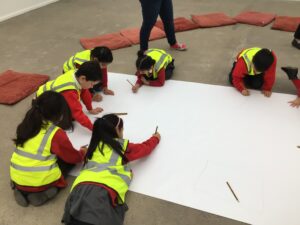
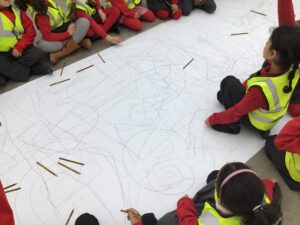
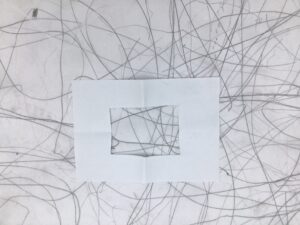
We also looked at some of the wonderful pieces of art in the gallery. We used our bodies to make shapes that represent the art.
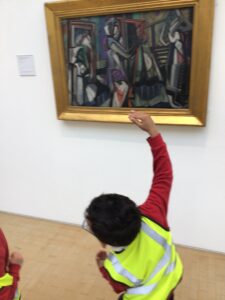
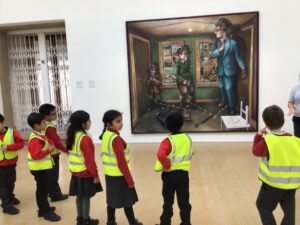

We enjoyed looking at different pieces of abstract art and discussing the colours, shapes and lines in each piece.
We also looked at some figurative art. We then drew round our bodies (in poses like those in the art) to add even more lines and shapes to our whole class abstract art piece.
